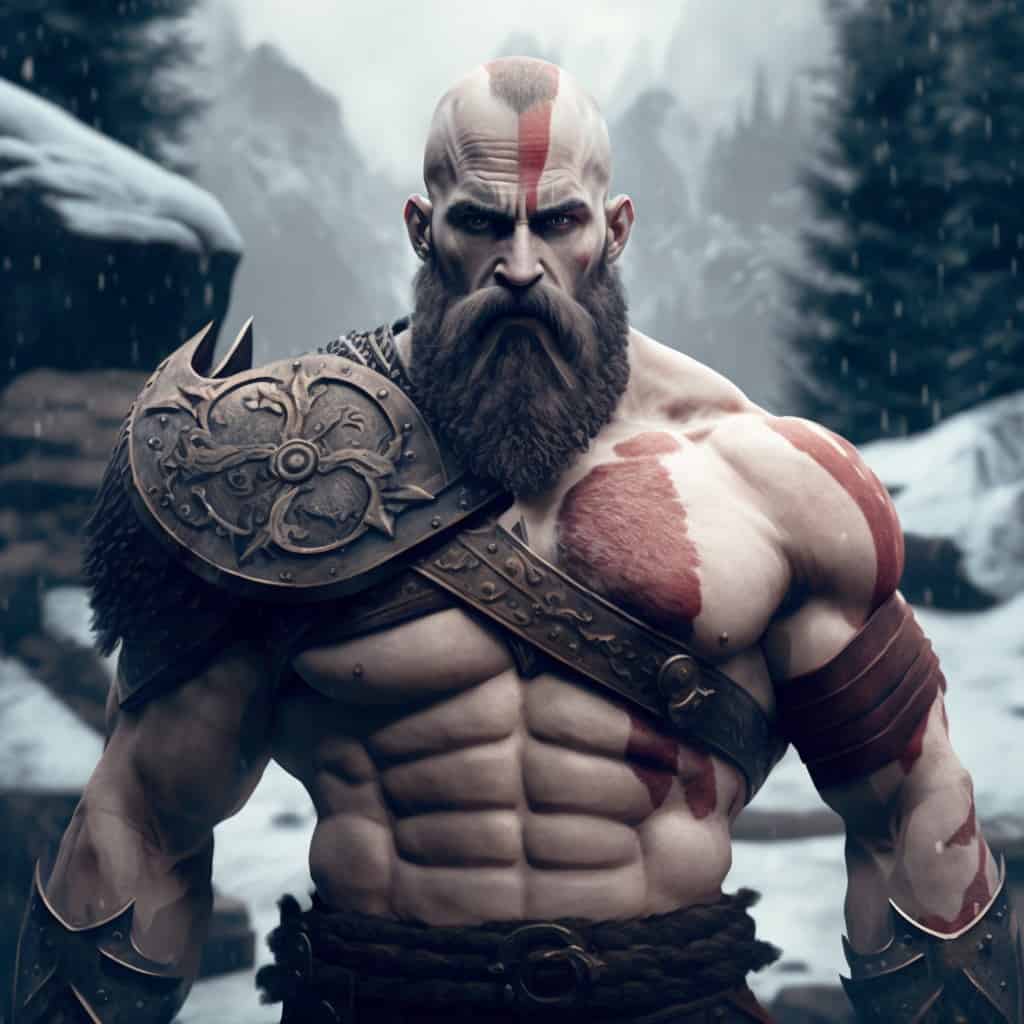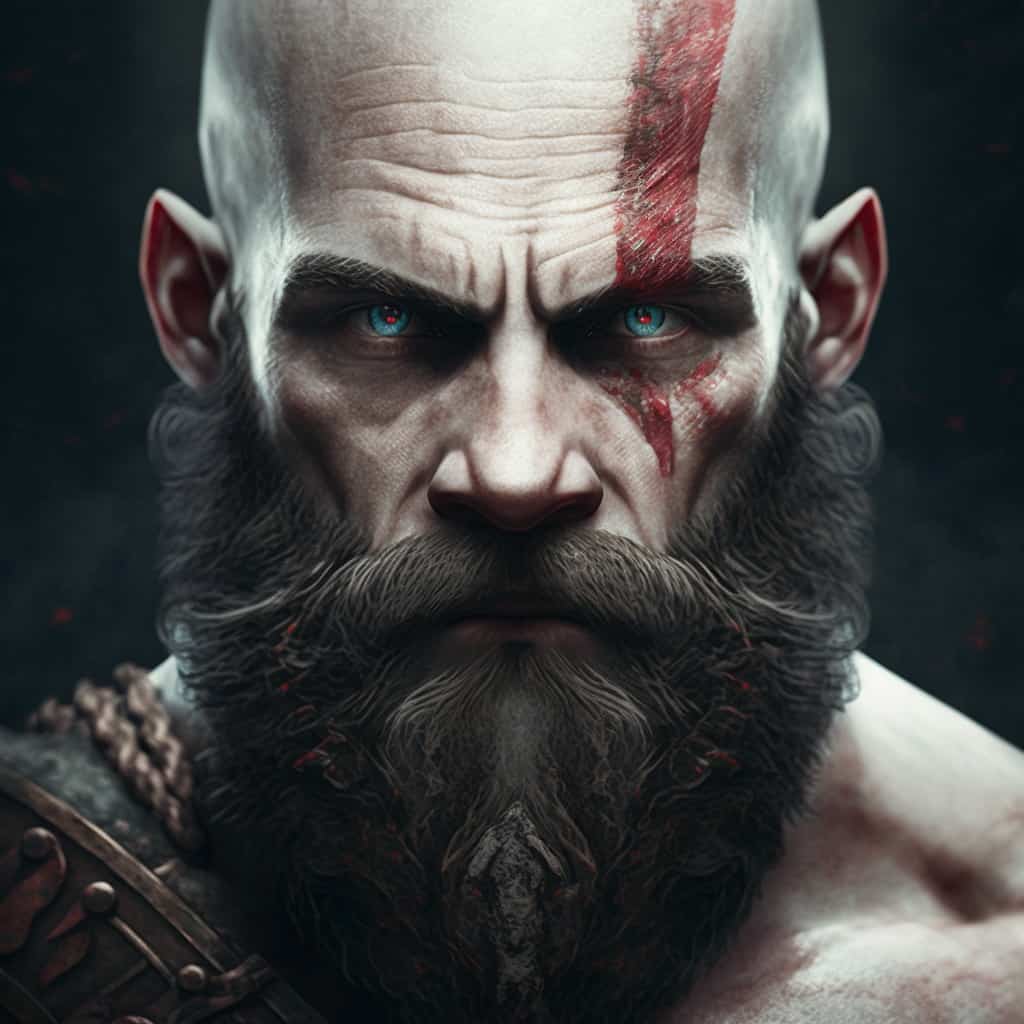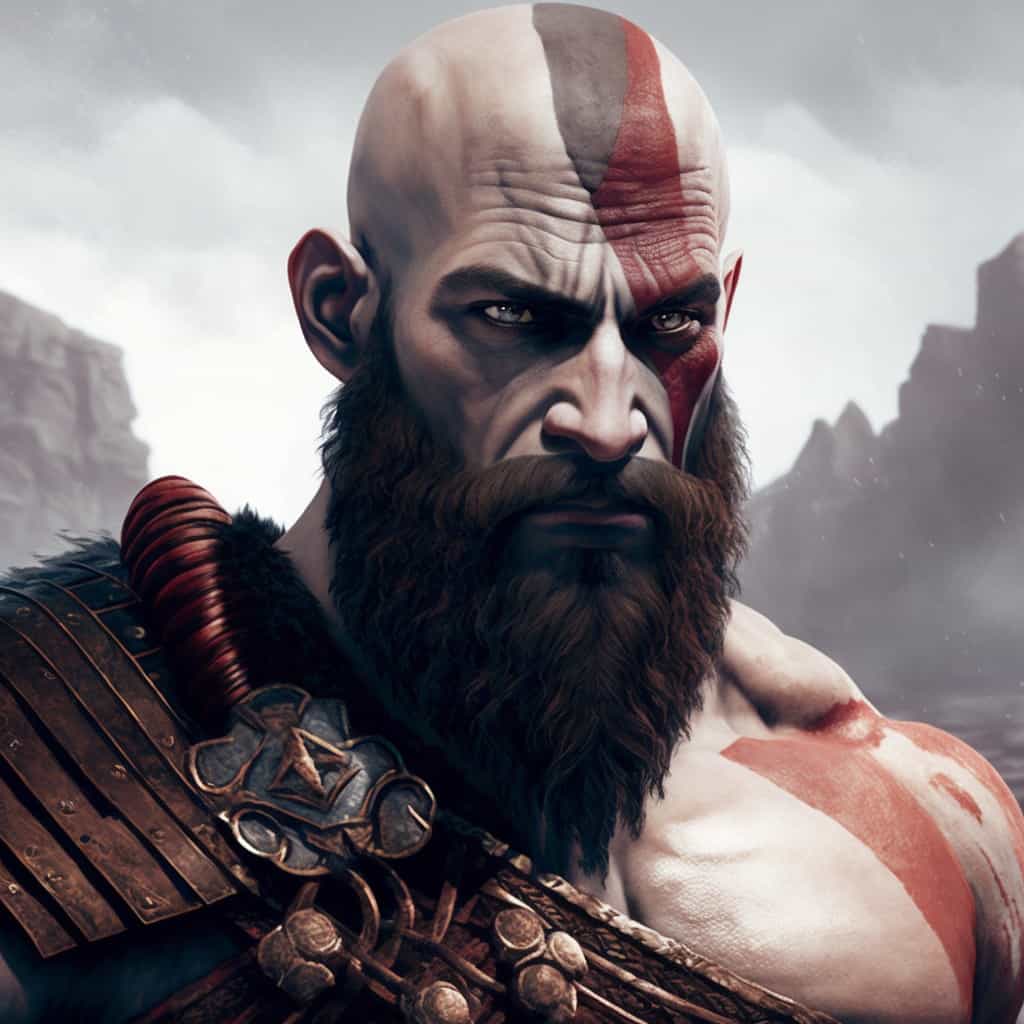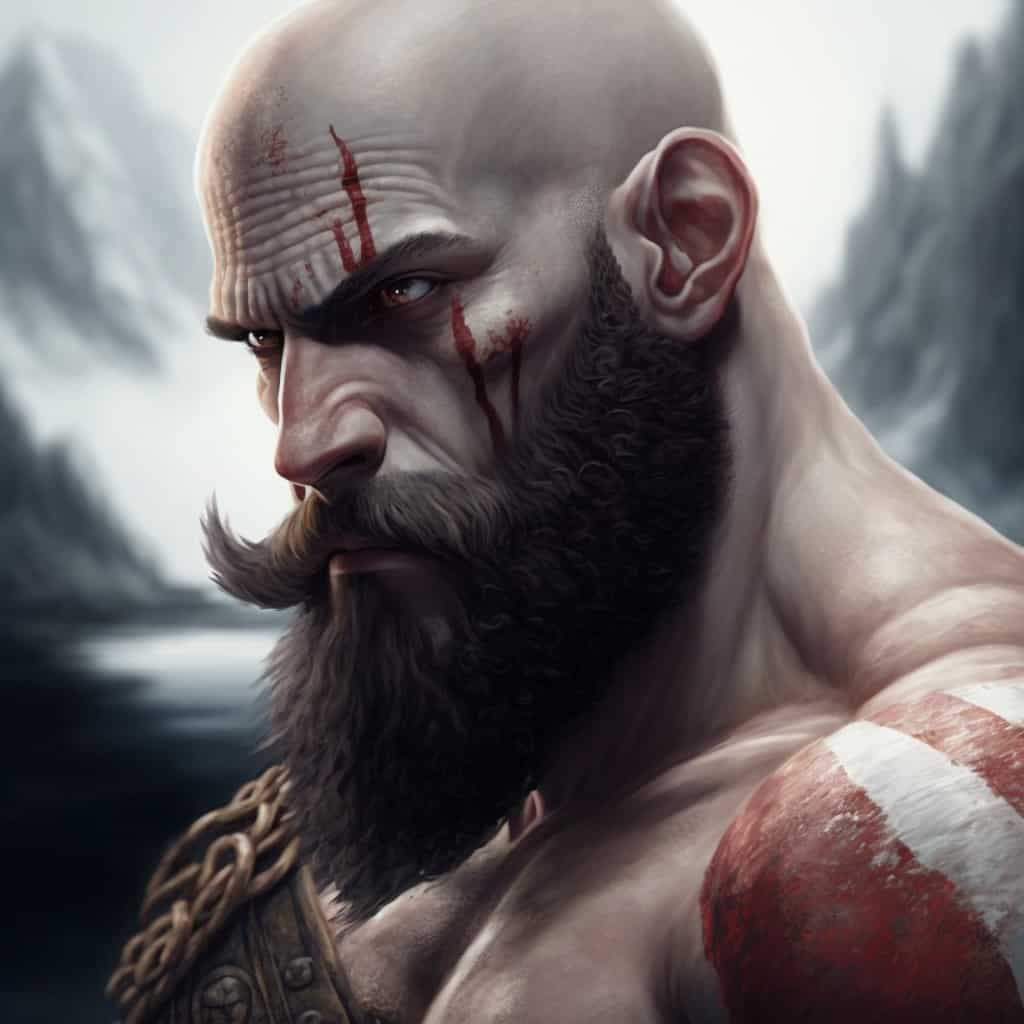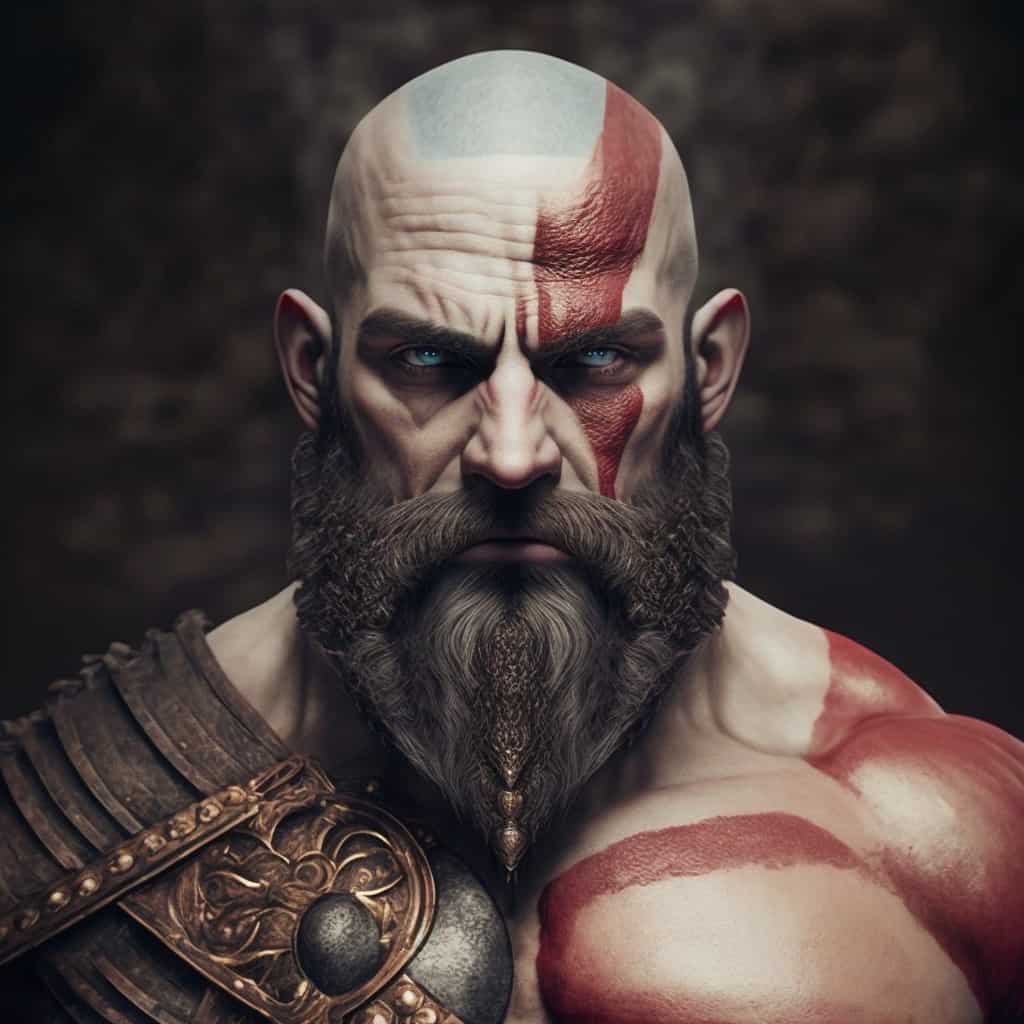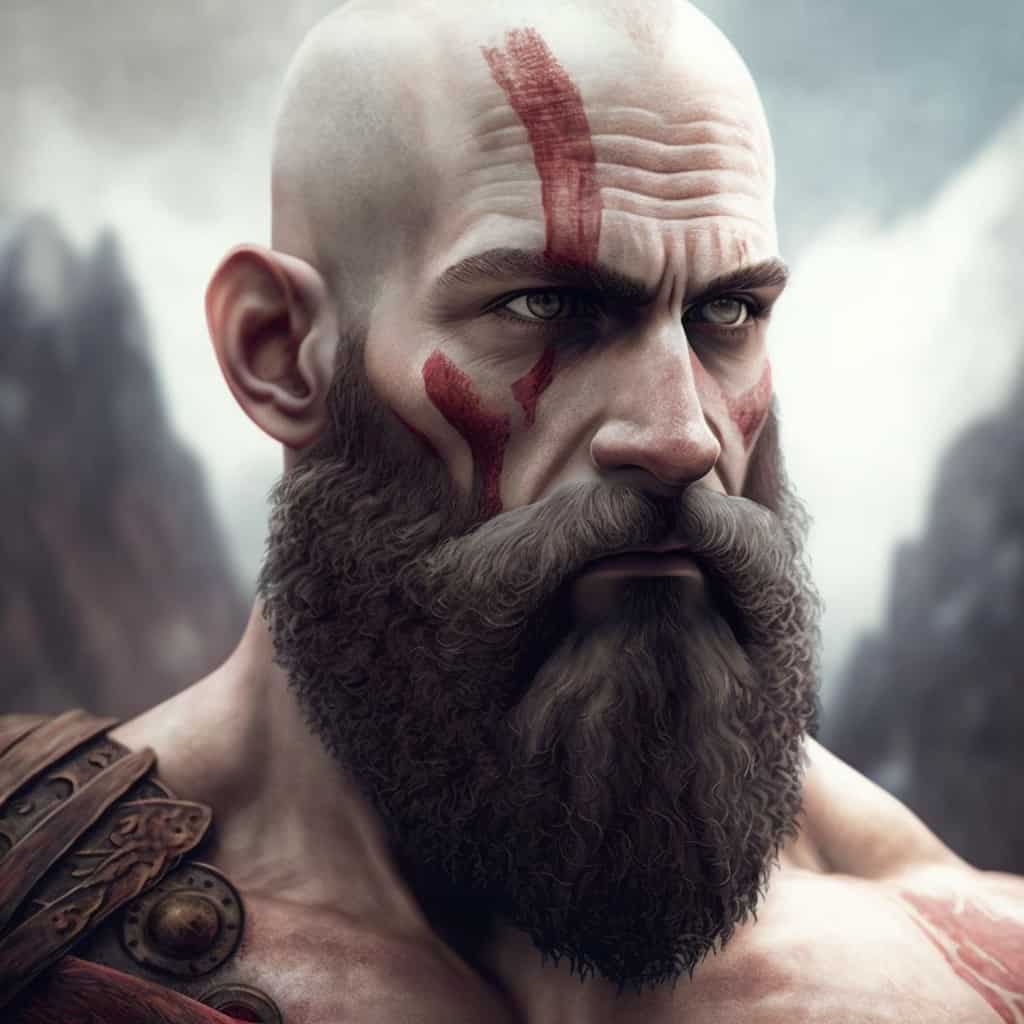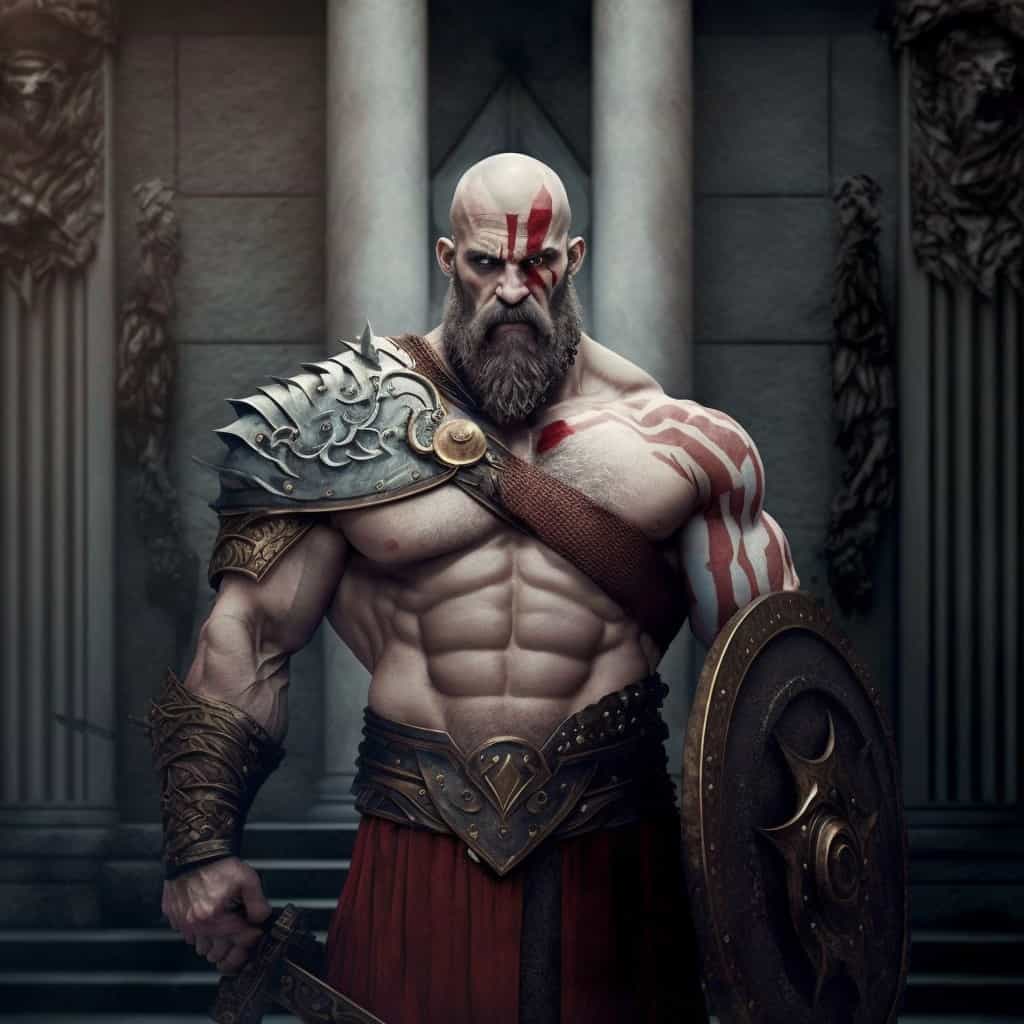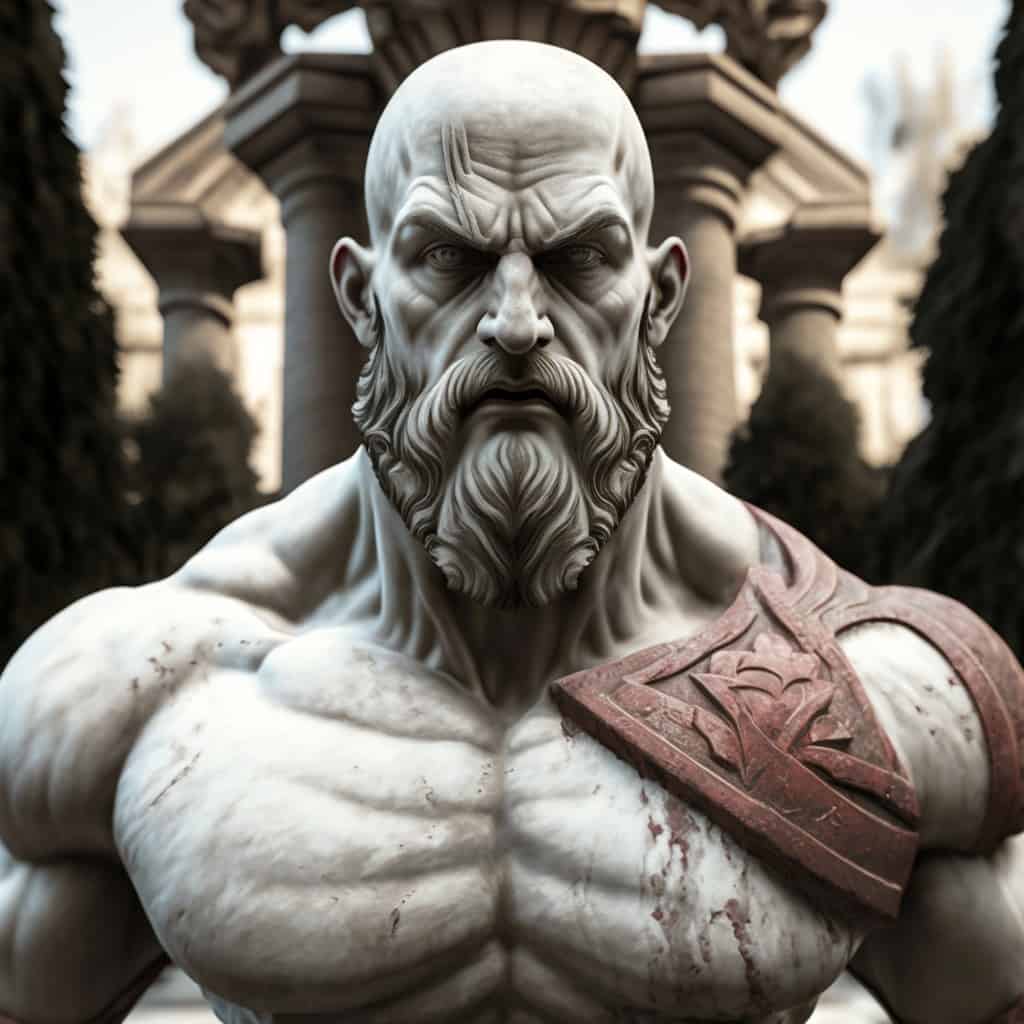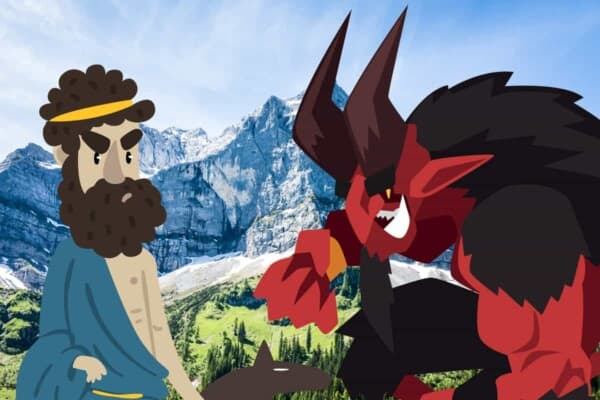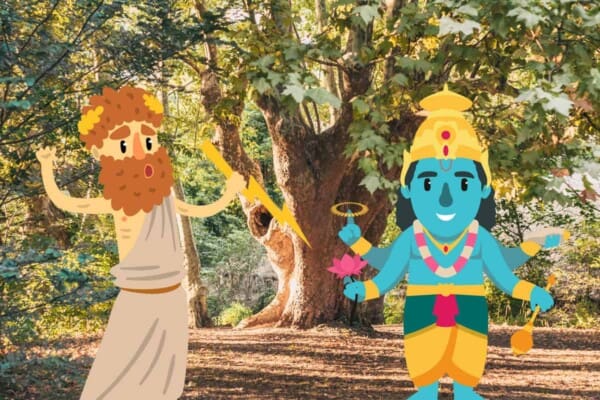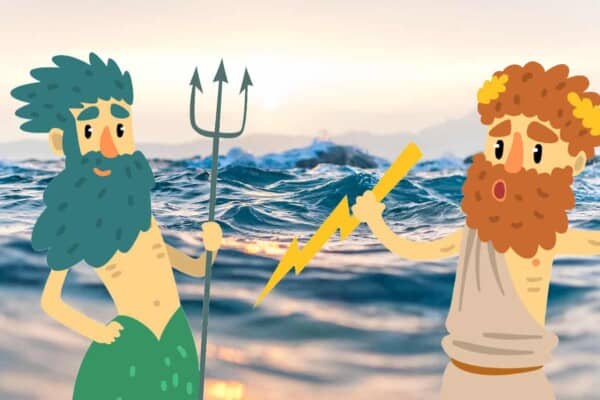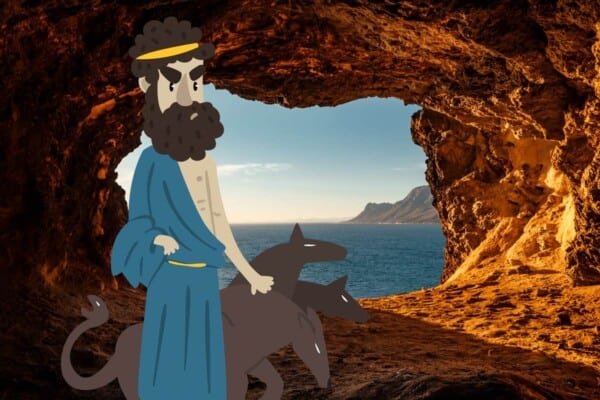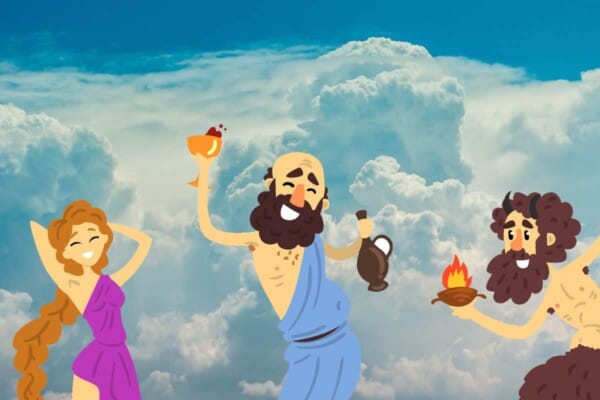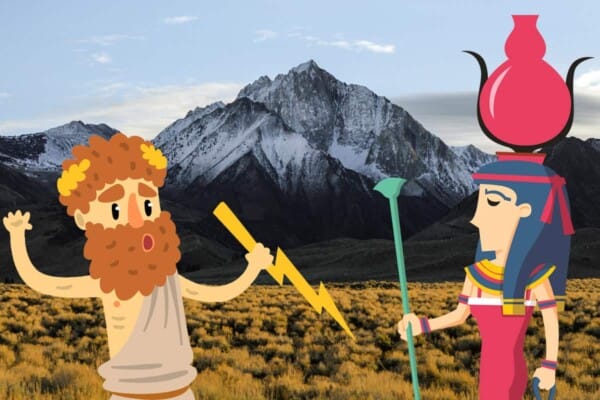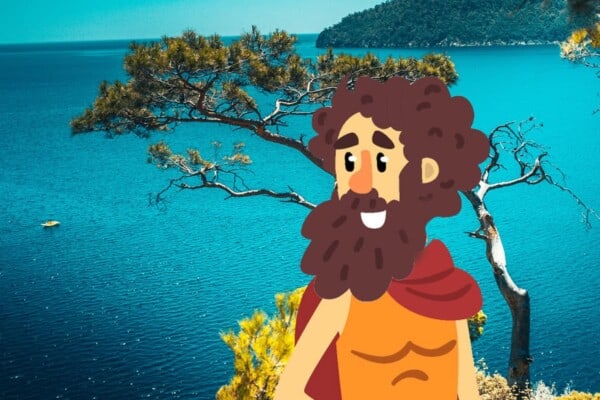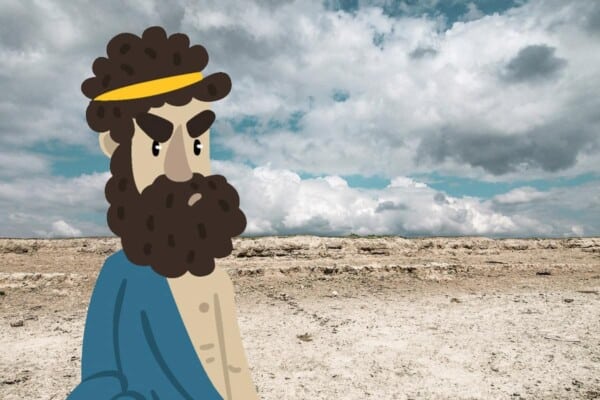Greek mythology is known for having some of the most interesting and entertaining stories ever told. That is mostly due to the fact that they were not necessarily meant to depict morality and righteousness, quite the contrary actually.
These stories were all about gods and goddesses, heroes and deities and all of their trifle attempts at coexisting with one another.
Sure, some of them are meant to indicate how one should live their life, but for the most part they were nothing more and nothing less than beautiful stories.
These stories would feature the concepts of love, courage and redemption with a hint of craziness and licentiousness. In simple terms, they were just downright fun.
But, with such a huge lineup of fascinating characters to explore, it’s no wonder that some would end up being left behind.
One such character is funny enough Kratos. The reason as to why this is so interesting to begin with is because Kratos may very well be one of the most popular Greek mythology characters in modern times.
Although, to be fair, that is mostly due to the incredibly well-beloved series of games “God of War”, which pretty much breathed new life into character.
But, the problem with this depiction is that it is not entirely accurate, which is why for today we decided to go over everything that we know about this figure and most importantly, walk you through the differences between the game character and the mythological character.
So, let’s just start off with the basics:
Is Kratos Really a God?
Depending on which version of the God of War you go for, you may be shocked to hear that Kratos’ origins differ vastly from one another.
What we do know for a fact however is that he is meant to be the divine personification of power and strength.
He is usually portrayed as brutal and merciless, mowing down through God and man alike, mocking both Hephaestus and Prometheus and forcing them to do as he pleases by simply using his power alone.
This show of unnecessary violence has become a staple of Kratos’ character, to the point where it even appeared as one of the main characteristics of his character in the God of War videogame series.
One of the biggest differences between the old Greek mythology version of Kratos and the new game one is that Kratos is a lot less of a monster and a lot more of a lackey for the gods.
He does not torture other gods for his own pleasure, instead opting to do Zeus’ will for the most part, even though a lot of the times it does appear as though he crosses the line quite a bit, brutalizing his victims altogether.
But, is he a God? Well, that is heavily disputable as even though many people would refer to him as one due to his power alone, this isn’t always a reliable way to discern his status.
For one, Kratos is actually not an Olympian God, he is considered to be part of the third and furth generation of deities that ruled over Olympus.
But depending on which version you get your information from, this may not be entirely true either, as in some of them he is a God, in others he is a demigod and in some he is just a strong fighter that proved himself in battle and was chosen by the gods as their fighter.
How Kratos Became Kratos?
One major difference between the Kratos in the God of War series and the Kratos in Greek mythology is the basis of their characters.
For one, Kratos in the game, as the name implies, is the God of War. On the other hand, the Kratos from Greek mythology is the God of Strength and Power.
That much is known by everyone that has read a book on Greek mythology, but weirdly enough, you will have a hard time finding any more concrete information about him there.
In other depictions of Kratos, it would appear as though Kratos was the son of the titan Pallas and the oceanid Styx. As such, it’s safe to say that the Kratos here is actually closely related to the old Olympian gods.
The reason as to why not many people knew about Kratos before, is because Kratos was a part of the third and fourth generation of immortal beings that were hailed as gods in the Greek pantheon.
But regardless, this myth states that Kratos had three siblings in total, aka Nike (Victory), Bia (Force and Violence) and Zelus (Zeal, Emulation and Aspiration).
The myth was actually created by Hesiod (750 – 650 BC), and he states that Styx was massively proud of her four children. In this original story he claims that in order to receive their titles, they all had to prove themselves in battle.
This battle was organized by Zeus himself, as he was preparing for the Titanomachy. This was the name of the time period in which it was foretold that the Olympians would have to face off against the Titans.
As such, Zeus decided to raise a little bit of an army of Olympians under himself, and one of the first gods that he decided to ask for help from was none other than Styx herself.
Styx accepted this request, bringing her children with her, under one condition. The condition was simple, her children would get to live within Zeus for the rest of eternity, being under his command and also under his protection.
This is how the four children ended up living inside of Zeus, becoming aspects of his personality eventually.
But the myth doesn’t stop there, as it also claims that Kratos and his siblings became the winged enforcers of the God of Thunder himself.
Whatever Zeus wanted; they were the ones to make come true. In fact, they would also stand next to his throne, always watching over the God of Gods, protecting him from any danger whatsoever.
They would spend most of their time in Zeus’ palace at the top of Mount Olympus, almost never leaving Zeus’s sight.
The Son of Zeus
But that’s not the only popular myth regarding Kratos. In fact, there is another one that has actually been brought up a lot as of late, being just as if not even more popular than the original that was brought up by Hesiod.
In this myth, it is stated that Kratos is not just a servant of Zeus. Instead, Kratos is the legitimate child of Zeus, with his mother being a random unnamed woman.
Not a lot is known about this myth other than the fact that Kratos here is a demigod that fought alongside Zeus on multiple occasions, earning the right to call himself the Son of Zeus after all.
Prometheus’s Capturer
But regardless of any of that, the origin of Kratos is not the most important part about him, his feats are much more worth looking into.
For the most part, Kratos is not regarded as a fully-fledged God in any version whatsoever. In fact, he doesn’t even have his own major domain that he reigns over. Instead, he plays the role of servant, following the rules of whichever God rules over him.
There is however one myth in which Kratos does appear quite a lot alongside his sister Bia. This was all depicted in the opening of Aeschylus’ (525/524 – 456/455 BC) Prometheus Bound.
As you can probably tell from the name of the work alone, it primarily centers around the tragedy of Prometheus’s character. In the original tale, the titan Prometheus had stolen the fire for humanity and as his punishment he was bound to a rock.
For the rest of eternity, Zeus had an eagle eat away at his immortal liver, continuously taking bites as it regenerated entirely only to be consumed yet again.
This much is known by most Greek mythology fans, but did you know that in order to actually capture Prometheus, Kratos had to get involved?
That’s right, according to Aeschylus, Kratos was the one that barged into Hephaestus’s halls, forcing him to help chain Prometheus.
This is interesting for multiple reasons. For one, this means that Kratos was powerful enough to force an Olympian to do as he willed.
That was no pushover god either, it was Hephaestus, the God of Fire. And yet, even with all of his might, he was easily overpowered by Kratos and eventually forced into chaining the titan Prometheus.
At his will, Hephaestus ended up creating the chains that would then be used to bind Prometheus to the rock. While Kratos was not alone in this, having his sister Bia watching his back at all times, it is still a testament of his strength that Hephaestus couldn’t do anything to escape the two.
The God of Brutality
This myth does give Kratos quite a few character traits that we’ve never even heard of before, with one in particular even carrying over to the modern iterations of Kratos in the God of War series.
We are talking about the overall brutality of the character. While most other gods prefer to fight with words and mystical weapons, Kratos on the other hand takes pride in how brutal he can be with his enemies.
He spends most of his time in the myth brutalizing his enemies, leaving unnecessary wounds all over their bodies and mercilessly killing everyone that stands in front of him.
One thing that we can say however is that we don’t know how much of this brutality was Kratos’ idea and how much of it was Zeus’.
But at the same time, what we can say is that Kratos does seem to be a bit trigger happy when it comes to enforcing the will of Zeus on his enemies.
Guard dogs will bite anyone that dares to attack their master, but if that same dog ends up brutalizing an old lady for talking back, it’s pretty clearly the dog’s will there not the master’s.
The Defender of Gods
As mentioned previously though, Kratos usually doesn’t do anything of his own accordance, instead opting to follow orders and make any god’s will come true.
He is the first to be called by the other gods when a battle ensues, which is a pretty good testament to his overall strength.
Usually, he fights alongside his siblings Bia and Nike, but interestingly enough he very rarely fights alongside Dike, a God of Justice. This could very well be an indicator that even though he fights a lot, he very rarely fights on the side of justice.
And at the same time, most of the time when Kratos is called upon, bloodshed ensues, and as such he is only called in case extreme violence is needed.
But all in all, what we can take from this is that Kratos himself was less of a character in Greek mythology and more of a symbol of violence and brutality.
In simple terms, he would almost never actually have any personality traits other than bloodlust and a need to cause pain and suffering onto everyone around him.
It is also believed that Kratos and his sister Bia appeared in the lost work titled Ixion by Euripides (480 -406 BC).
God of War
But regardless, that’s where the story of the God of Strength ends. Luckily, there is a modern reincarnation of the character that has gotten everyone onboard, and that is the God of War series.
In this world, Kratos is actually a Spartan youngling that is forced to fight for his life in order to become a powerful warrior.
After his brother is taken away by Ares and Athena, Kratos ends up branding himself with red tattoos in order to commemorate his brother’s unconventional birthmarks.
Throughout the game’s runtime, Kratos ends up becoming a revered captain, only for him to be tricked by Ares into selling his soul and eventually killing his own family.
After this point, Kratos swears to take revenge on Ares and the Gods of Olympus, killing them one by one until his bloodlust is quenched. He eventually takes down Ares and becomes the new God of War in his stead.
Common Questions About Kratos
In this section we would like to quickly go over some of the most important questions that are always brought up regarding the God of Strength himself, Kratos. So, here they are:
What Did Kratos Rule Over?
Kratos is believed to have been the representation of Strength and Power. This was made all the more apparent by him overpowering all of his enemies with ease.
His greatest showcase of strength was him basically forcing Hephaestus, the God of Fire, to do as he commanded.
Where Did Kratos Live?
Interestingly enough, it is believed that Kratos actually resided in Zeus. His bloodlust and love for violence is believed to have merged with Zeus’ already monstrous personality, making him even more of a monster over time.
Was Kratos the Strongest Child of Styx?
This is largely unknown, the only thing that we do know is that he was the most prone to violence out of all of them, so he most likely had undergone more fights than his siblings.
Did Kratos Hate the Other Gods?
Kratos is mostly shown with disdain towards other gods because they are not as powerful as he is. He only follows two gods’ will, and they are Styx, his mother, and Zeus.
In fact, Kratos would later on become a personification of Zeus’ wrath, to the point where every god and man would be afraid of Kratos just as much as they would be afraid of Zeus himself.
Conclusion
Kratos is a legendary warrior that fought both man and God alike. He spent most of his time covered in the blood of his enemies, carving away at his enemies until no one dared to defy his master’s will again.
While not a lot is known about him, Kratos did make a comeback in modern times thanks to the popular game series God of War, completely remaking his character and turning him into the new God of War.
Regardless of which version of Kratos you prefer, the one thing we can safely say is that neither of them are the types of characters we would ever want to meet up in this life or the next.

